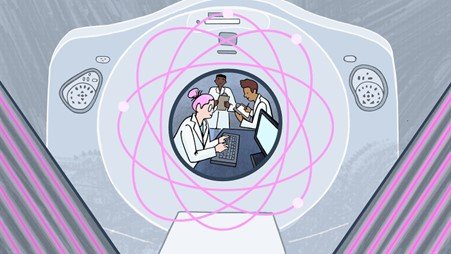Physics are the rules by which technology plays a game. Technology as defined today is the culture that has grown up around the manipulation of that information. The impact of Physics has shaped our lives in many domains. It continues to drive innovation and deepen our understanding of the universe, influencing almost every aspect of modern life. Physics-based models are essential for understanding and predicting climate change, helping to shape environmental policy and conservation efforts.
Its principles are fundamental in designing aircraft, rockets, and spacecraft, enabling air travel and space exploration. Understanding mechanics and thermodynamics has led to the development of more efficient and safer vehicles. The study of nuclear reactions has led to the development of nuclear power plants, providing a significant source of energy.
Table of Contents
Impact of Physics in Different Domains
It has a profound impact on society, influencing many aspects of daily life, technology, and the broader socio-economic landscape. Here are some key impacts:
Technological Advancements
The principles of electromagnetism and quantum mechanics have led to the development of the internet, mobile phones, and wireless communication, transforming how we connect and share information. Advances in semiconductor physics have enabled the creation of computers and smartphones, revolutionizing work, education, and entertainment. It drives technological innovation, leading to new tools and methods that improve education.
Healthcare and Medicine
It plays a crucial role in healthcare and medicine, providing the foundation for many diagnostic tools, treatment methods, and medical technologies. Technologies such as X-rays, MRI, and CT scans rely on it to diagnose and treat medical conditions, greatly improving healthcare outcomes. It has enabled the development of treatments like radiation therapy for cancer, saving countless lives.

Energy and Environment
It plays a critical role in understanding, managing, and innovating in the fields of energy and the environment. Understanding nuclear and renewable energy sources has led to the development of cleaner and more efficient power generation methods. Physics-based climate models help predict and understand climate change, guiding policy decisions and conservation efforts. The development of batteries involves electro-chemistry and materials science, both rooted in it, to store energy efficiently and release it when needed.

Transportation
It is integral to the field of transportation, influencing the design, efficiency, safety, and innovation of various modes of transport. Advances in mechanics and thermodynamics have led to safer, faster, and more efficient vehicles and aircraft. Physics has enabled space travel, leading to satellite technology that supports GPS, weather forecasting, and global communications. The development of strong, lightweight materials improves aircraft performance and fuel efficiency. Materials used in aircraft must withstand extreme temperatures, especially for components like jet engines, which rely on thermodynamics and heat transfer principles.
Economic Growth
Physics research drives innovation, leading to new products, industries, and job creation. Technologies like lasers, semiconductors, and nanotechnology have sparked entire economic sectors. Technological advances rooted in physics have increased productivity across various industries, contributing to economic growth and improved living standards. Advances in physics drive technological developments that fuel economic growth. The impact of physics on economic growth is profound, as it drives innovation across a range of critical sectors, leading to new technologies, improved efficiencies.

Education and Knowledge
Physics is a core component of STEM (Science, Technology, Engineering, Mathematics) education, fostering critical thinking and problem-solving skills essential for the modern workforce. It has expanded our understanding of the universe, from the smallest particles to the vastness of space, enriching human knowledge and culture. It often intersects with other fields like engineering, astronomy, and medicine, fostering interdisciplinary learning and allowing students to see the connections between different areas of knowledge.
Education and Knowledge
The development of nuclear weapons has had profound geopolitical implications, influenced global politics and led to discussions on ethics and disarmament. Advances in physics-based technologies, such as encryption, have significant implications for privacy, security, and surveillance in the digital age as well as technologies based on quantum mechanics and other advanced physics areas can impact privacy. For instance, quantum encryption promises secure communication, but it also raises concerns about surveillance and the balance between security and personal privacy.
Quality of Life
Everyday appliances like microwaves, refrigerators, and air conditioners are based on principles of physics, improving convenience and comfort. Physics continues to shape society in countless ways, driving progress and addressing challenges in health, energy, environment, and technology. Its influence extends beyond practical applications, enriching our understanding of the natural world and our place within it.
ALSO READ: VPN Usage and Regulation in Pakistan: Registration, Internet Speeds, and Accessibility in 2024

